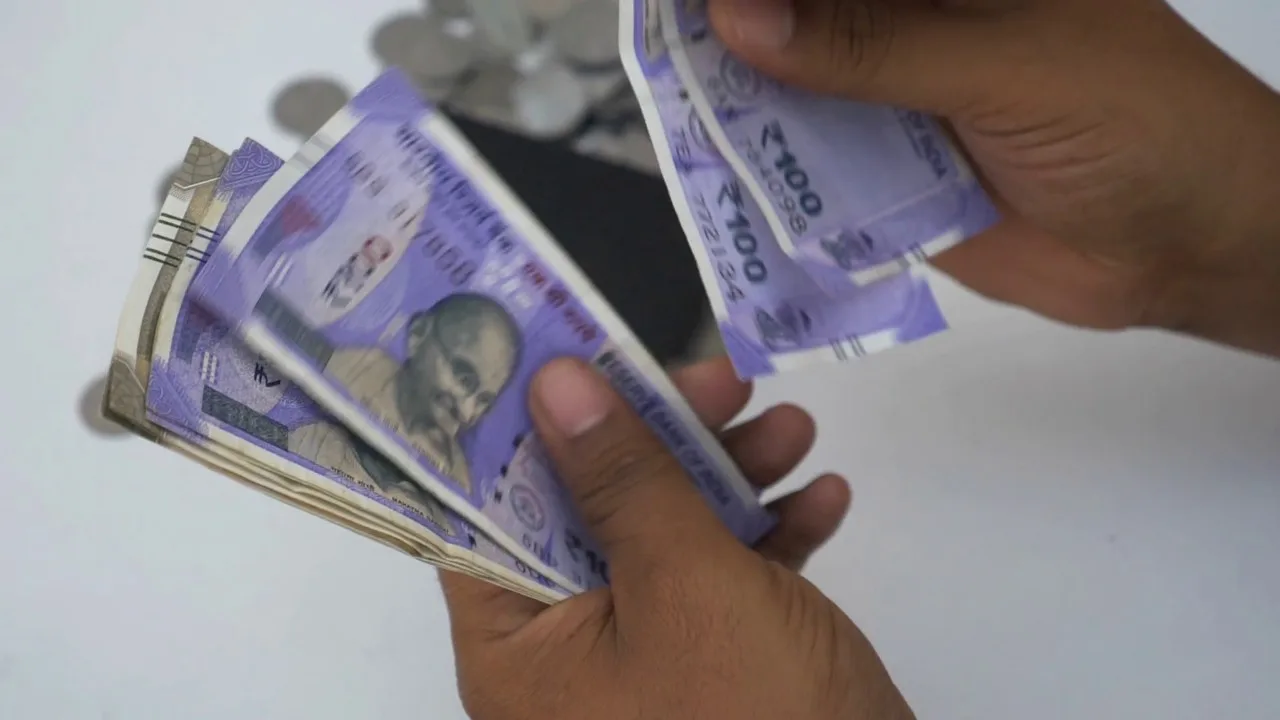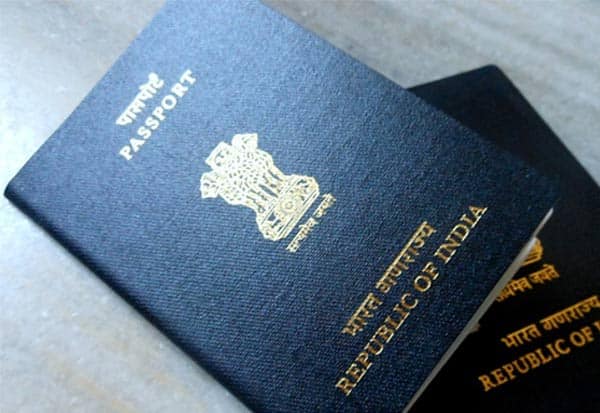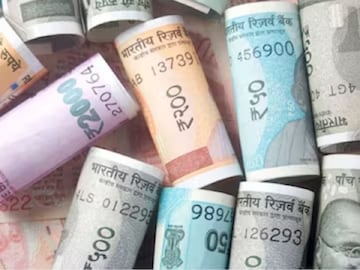Tuesday, December 30, 2025
8th Pay Commission: What actually happened in 2025 and what 2026 holds for employees, pensioners
Tuesday, December 16, 2025
Stiff penalties mark big policy shift in regulating higher education
In extreme cases, regulators can recommend suspension of degree-awarding powers, withdrawal of affiliation or even closure. Every year the UGC, which will cease to exist, used to notify a list of fake universities, but beyond that no action could be initiated and they continued to function at the cost of unsuspecting students, many of whom were left with invalid degrees and financial losses. The bill introduced a ₹2 crore penalty for unauthorised institutions operating without govt approval, along with immediate closure
Sunday, October 19, 2025
Central employees hit the jackpot, the government made new rule
Central employees hit the jackpot, the government made new rule
vipin kumar October 18, 2025 - 09:05 AM
New Delhi: If you have a government employee or pensioner in your family, this news will prove to be a great relief. The Modi government at the central government has taken a major decision for employees. Employees and pensioners will no longer face delays in receiving their post-retirement benefits. To this end, the government has issued comprehensive new guidelines.
The government aims to ensure that no employee has to wait months for their pension or pension payment order. This means that there will be no long wait for a pension payment order after retirement, which is sure to be good news.
Know the details The central government has also released some good news by issuing new guidelines. The Department of Pension and Pensioners’ Welfare has issued the new guidelines. All ministries and government departments have been instructed to ensure that PPOs are issued before retirement.
The government has also directed all departments to digitise employee service books. In addition, every employee’s record will now be online through the e-HRMS system. This will make the pension process much easier and more transparent.
Pension Mitra will be created in all departments. According to the new guidelines of the Central Government, a Pension Mitra will be created in every department. A Welfare Officer will also be appointed. The deployed officer will be able to assist retiring employees in filling out forms, preparing documents, and applying for pensions.
In the event of an employee’s death, these officers will also be able to assist the family in receiving a family pension. Lack of vigilance clearance will no longer be a hindrance to disbursing pensions. Even if an employee is under investigation for some reason, interim bail will be granted. Gratuity can only be withheld until the final order.
How long before a PPO is required? The government has established some important rules to know. Under the CCS Rules 2021, it has now been decided to issue employees their PPO or e-PPO at least two months before retirement.
According to the government, the purpose of these new provisions is not only to expedite the process but also to provide a respectable and stress-free retirement experience for all employees. It is now expected that no government employee will have to wait for their rights. This government order is being widely appreciated.
Wednesday, October 1, 2025
Centre hikes Dearness Allowance/Dearness Relief by 3%; to benefit 1.18 crore employees, pensioners
Tuesday, April 8, 2025
Govt puts time riders to receipt, utilisation of funds under FCRA
Monday, March 17, 2025
8th Pay Commission: Central employees’ commuted pension to be restored after 12 years?
Thursday, March 13, 2025
DA Hike Update: The lowest DA in 7 years? Union Cabinet To Decide toda

Sunday, March 2, 2025
பாஸ்போர்ட் பெறுவதற்கு பிறப்பு சான்றிதழ் கட்டாயம்

Sunday, February 2, 2025
Budget gives broadband boost to edu spectrum
Budget gives broadband boost to edu spectrum
TEAM TOI 02.02.2025
Finance minister Nirmala Sitharaman announced a significant increase in allocation for the education sector, focusing on last-mile broadband connectivity in rural schools that were worst hit by insufficient internet coverage during Covid. Infrastructure expansion for IITs, medical education and AI in learning were also among the Budget highlights.
The digital push is expected to boost broadband connectivity at all govt secondary schools and primary health centres in rural areas. Five of the newer IITs — in Jammu, Bhilai, Dharwad, Palakkad and Tirupati — would be expanded to accommodate 6,500 more students over the next five years. And, ahead of the Bihar assembly polls scheduled later this year, IIT-Patna is set to receive funds for enhanced infrastructure, including hostels.
“The total number of students in 23 IITs has doubled in the past decade from 65,000 to 1.4 lakh,” said FM Sitharaman. The IIT budget has increased to Rs 11,349 crore from Rs 10,467 crore. To strengthen research, 10,000 fellowships for technology research in IITs and IISc will be provided over five years. Five national centres for excellence (CoEs) in skilling will also be set up, along with 50,000 Atal Tinkering Labs in govt schools to pro mote scientific curiosity. A CoE in AI for education will also be established with a Rs 500-crore outlay. Sitharaman said the edu cation ministry will get Rs 1.3 lakh crore, up from Rs 1.1 lakh crore in 2024-25. Of this, Rs 50,067 crore is for higher education and Rs 78,572 crore for school education. Education minister Dharmendra Pradhan called the Budget a “leapfrogging moment” for the sector.
“With poor, youth, farmers and women as the pillars, this Budget will accelerate spending, spur growth and nurture research, innovation, entrepreneurship,” he said. While allocations for UGC, NCERT and IIMs have increased, funding for IISERs and World Class Institutions has seen cuts.
FM charitable to trusts; registration tenure is doubled
since the inception of the trust), his relatives and concerns in which he held a substantial interest. “This ridiculously low limit of Rs 50,000 had remained unchanged for 40 years since 1985, and trusts found it impossible to identify or obtain details of such donors, their relatives and concerns. The limit is now being changed to Rs 1 lakh for donations during the year, or aggregate of Rs 10 lakh since inception. Further, relatives or concerns of such donors are excluded from the list of specified persons. While this will provide much-needed relief to trusts in maintaining records, the retention of period of aggregation of donations from inception of the trust will still be problematic for trusts which are several decades old,” concludes Nayak
In nil-tax bracket? Why a raise won’t help you much
Nirmala Bats For Middle Order To Revive India’s Spend Force
For those under the old regime — used usually by those who have home loans or HRA deductions — there is no change in either rates or slabs. To come back to a point that often causes confusion, what happens to those with taxable incomes of just over Rs 12 lakh? In such cases, the taxpayer will get marginal relief to ensure that those earning just over Rs 12 lakh don't end up with post-tax incomes lower than those earning Rs 12 lakh. For instance, an individual has a taxable income of Rs 12.10 lakh. Without marginal relief, their tax liability would be 61,500 calculated as per tax slabs. However, with marginal relief in place, this taxpayer owes just 10,000. But there’s a cap — marginal relief is only admissible for incomes up to approximately 12.75 lakh. Beyond this, regular tax slabs apply.
Tuesday, January 21, 2025
Central govt may soon ask private companies to notify vacancies
This is a good initiative.” The Centre is also drafting a Private Placements Act to regulate placement agencies. States like Mizoram, Chhattisgarh, and Assam have already submitted inputs for this bill. Maharashtra too plans to make submissions for it. Under this act, all placement agencies will have to register in their respective state, which will empanel and monitor them. “These agencies often charge fees and promise jobs but sometimes end up duping candidates. By registering them, we can hold them accountable and track data on jobs secured through their platforms,” said an official. These agencies will also be required to participate in state-organized job fairs. Meanwhile, as part of a 100-day action plan in Maharashtra, job fairs will be organized in industrial belts, and memorandums of understanding will be signed with 1,000 industrial establishments.
Monday, January 20, 2025
Will central govt employees get 18-month DA arrears of COVID period? Hopes rise after 8th Pay Commission nod

Friday, January 17, 2025
8th Pay Commission: Will Central Govt Employees See 186% Jump In Salary? Know What's Expected

8th Pay Commission For Govt Employees, Pensioners Gets Cabinet Approval | Check Details

Thursday, January 16, 2025
Govt employees can now use LTC for Tejas, Vande Bharat and Humsafar trains
)
Sunday, January 5, 2025
Want timely info on outbreaks in China: India to WHO
Thursday, January 2, 2025
₹2000 notes worth ₹6,691 cr. yet to be returned: RBI data
Report FCRA violations by NGOs, govt. asks CAs
Report FCRA violations by NGOs, govt. asks CAs
The Hindu Bureau
The Union Home Ministry on Wednesday notified that chartered accountants filing audit returns on behalf of NGOs need to specify if the organisation violated provisions of the Foreign Contribution (Regulation) Act, 2010 (FCRA) or not.
The Act requires a CA to certify if an association or NGO has utilised foreign contribution received for the purposes it was registered for and the annual statements are to be uploaded on the FCRA portal.
In a December 31 notification, the Ministry said that CAs will have to mention the name, email address, and registration number of the auditor while issuing the audit certificate and specify if the NGO has “violated the provisions of FCRA, 2010 or rules made thereunder or notifications issued thereunder,” with the details of the violations.
The auditors will also have to specify if the NGO has not made any violation.
“I have examined all relevant books and records, including the items mentioned in column 8 of FC-4, and to the best of my knowledge and belief (name of the person/ association) has not violated any provisions of the FCRA, thereunder or notifications issued thereunder,” the CAs will have to specify. The notification amends the Foreign Contribution (Regulation) Rules, 2011.
A member of a voluntary group said the Home Ministry notification will make it more difficult for NGOs who are critical of the government to find auditors to file returns on their behalf. “Even if you find an FCRA donor, CAs will be scared to prepare certificates on the behalf of NGOs who are perceived to be not in the good books of the government,” said the member.
Earlier in 2021, the Ministry advised chartered accountants to ensure that foreign funds are received and utilised by NGOs “within the four corners of law”.
-
Chennai lockdown news: Today's updates from your city TIMESOFINDIA.COM | Apr 3, 2020, 07.59 AM IST Amid prevalent chaos an...
-
கொடிகட்டிப் பறந்த எம்.ஜி.ஆர் நூற்றாண்டில் கொடிக்கும் சின்னத்துக்கும் சிதறும் அதிமுக By -திருமலை சோமு | ...
-
ஃபிரிட்ஜில் வைக்கக்கூடாத 28 பழங்கள், காய்கறிகள், உணவுகள்! நமது நிருபர் நோய்கள் அத்தனைக்கும் ஒரே ஒரு காரணம்தான் இருக்க முடியும்... தவறான வா...










